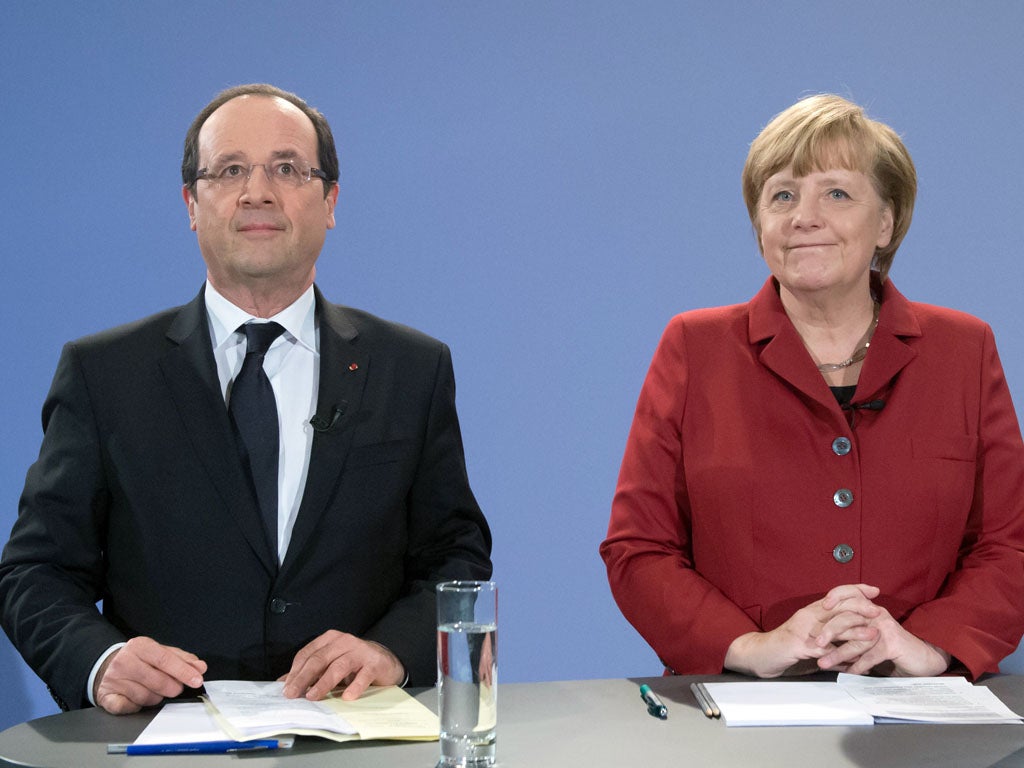Your support helps us to tell the story
This election is still a dead heat, according to most polls. In a fight with such wafer-thin margins, we need reporters on the ground talking to the people Trump and Harris are courting. Your support allows us to keep sending journalists to the story.
The Independent is trusted by 27 million Americans from across the entire political spectrum every month. Unlike many other quality news outlets, we choose not to lock you out of our reporting and analysis with paywalls. But quality journalism must still be paid for.
Help us keep bring these critical stories to light. Your support makes all the difference.
The German and French governments have offered David Cameron a deal that partially meets his demands to renegotiate European Union migrant welfare rules, it has been reported.
The Politico Europe website cites French officials close to the talks who say Francois Hollande and Angelea Merkel have told Mr Cameron they would support EU migrants being banned from claiming in-work benefits for three years.
Banning EU migrants from claiming in-work benefits, like tax credits, for four years when they first arrived is Mr Cameron’s main goal in the talks.
“British officials are open to compromises and alternatives, and David Cameron got the impression last week that several heads of state and government were ready for compromise as well,” a French official close to the talks reportedly told the website.
“There was a coordination between Hollande and Merkel to launch the idea of discussing possible compromises on this issue, ideally compatible with [EU] treaties.”
The welfare rules change is one of four pillars Mr Cameron has specified. The other three are protection of the single market for non eurozone states, cuts to regulation, and an exemption for the UK from the “ever closer union” clause of EU treaties.
Eurosceptic figures, including Ukip leader Nigel Farage, have accused Mr Cameron of already significantly rowing back on earlier rhetorical commitments to challenge the EU’s principle of freedom of movement, however.
The German and French proposed deal might not require the unanimous support of all EU states if it was conducted within the framework of existing treaties – something Downing Street has long said it might.
Poland’s new prime minister Beata Szydło told Mr Cameron on a recent trip to the country that she did not see “eye to eye” with him on some issues.
Other states with large numbers of nationals living abroad have also expressed opposition to the changes. If treaty changes were required for a deal unanimous support for proposals would be required.
The UK could vote on whether to keep its Europe Union membership as early as next summer, with a referendum due by the end of 2017.
The plebiscite was pledged in the Conservatives’ 2015 election manifesto, pending a renegotiation of the terms of membership of the EU by Mr Cameron.
Subscribe to Independent Premium to bookmark this article
Want to bookmark your favourite articles and stories to read or reference later? Start your Independent Premium subscription today.

Join our commenting forum
Join thought-provoking conversations, follow other Independent readers and see their replies
Comments